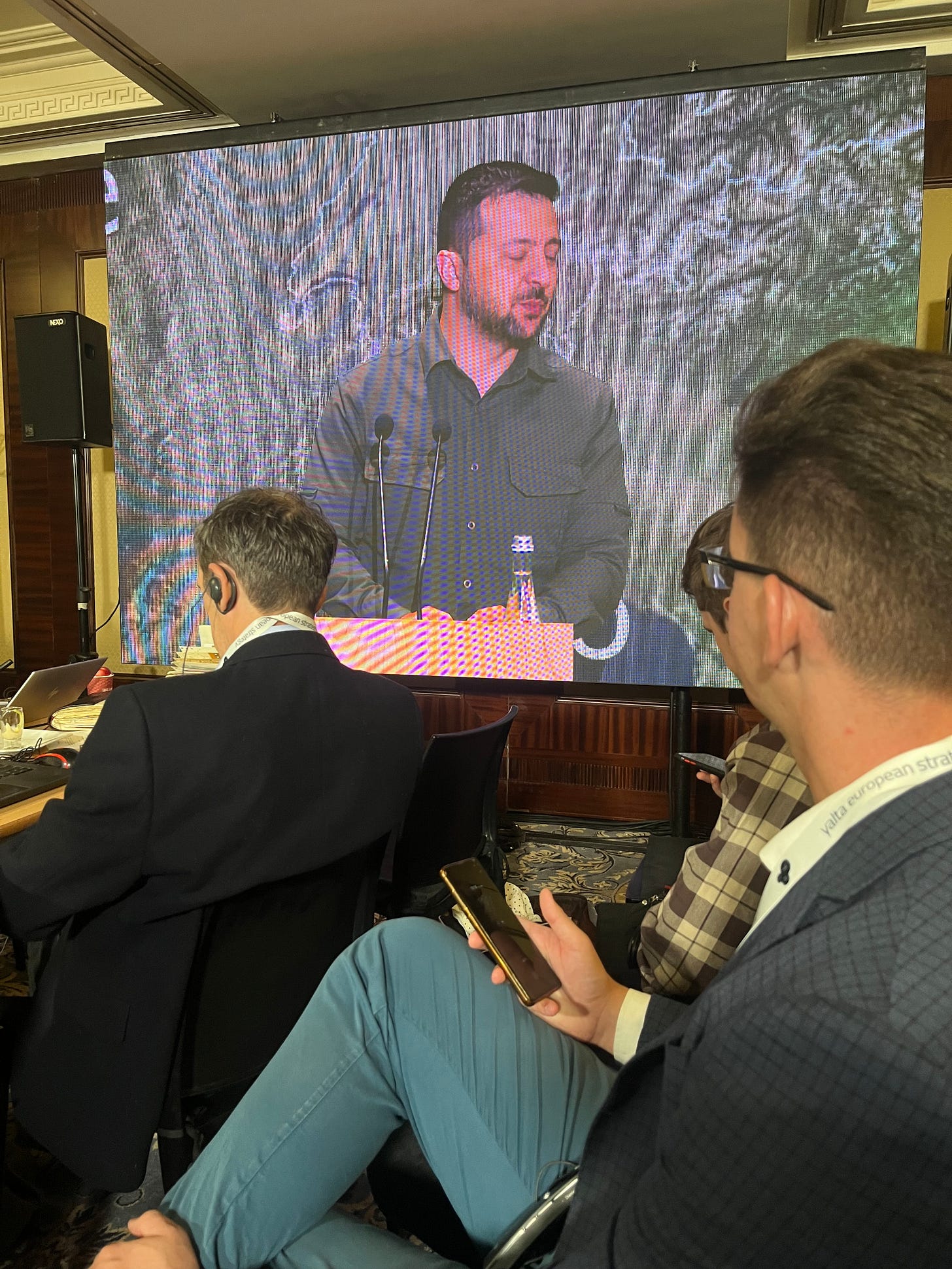3 Takeaways From a Security Conference in Wartime Kyiv

Last weekend, I attended the Yalta European Strategy conference in Kyiv, which is a gathering of government officials and foreign policy experts focused on Ukraine. The conference was like drinking from a firehose; it consisted of two days of panel discussions, side conversations, and speeches, including from President Volodymyr Zelenskyy, who kicked off the conference. After my brain cleared from taking trains and buses from Berlin to Kyiv and two 14-hour days, three themes stood out.
Ukraine may turn into a 'long' war, but it is not a 'forever' war.
Both Ukrainian and U.S. officials spoke openly about preparing for a "long war." Zelensky, in an interview with The Economist on the sidelines of the conference, said, "I have to be ready, my team has to be ready for the long war, and emotionally I am ready.” Top U.S. State Department official Victoria Nuland said, "Everything will not end in [the] coming weeks. We have a long road ahead in development, the reconstruction of Ukraine. We must be ready financially, psychologically, and mentally for this."
The Ukrainian people say they are prepared for this. Even if it means a longer war, Polls show that 84 percent of Ukrainians want all of the territories occupied by Russia back. (Bear in mind that for Ukrainians, the war has been going on since 2014.) Why not compromise? Russia's lasting 2022 territorial gains in the South and East would not have been possible without Russia having taken over Crimea and the Donbas in 2014. On the other hand, Russia did not take control of Kyiv, where they did not have territory. To deter Russians from a future invasion, a similarly high number of Ukrainians also want NATO membership,
Despite the fact that the war has lasted a year and a half and has no end in sight, that does not mean that it has turned into a "forever war" or is a stalemate. In contrast to the vague goals of the U.S. in Afghanistan, Ukrainians have a clear goal to evict Russians from their territory and ultimately join the EU and NATO. By historical standards -- World War I lasted more than four years and World War II lasted nearly six years -- the Ukraine war is hardly "forever" in terms of time. Stalemate isn't accurate, either: Ukraine has been reporting slow but steady progress in its counteroffensive. The pace is slowed by the intricate mines that Russia laid, primarily last year, as Western governments debated about what kinds of aid to send the Ukrainians. These mines cause heavy casualties; British MP and military expert Bob Seely said at the conference that one Ukrainian soldier dies and three or four are injured for every 75 meters of territory gained.


